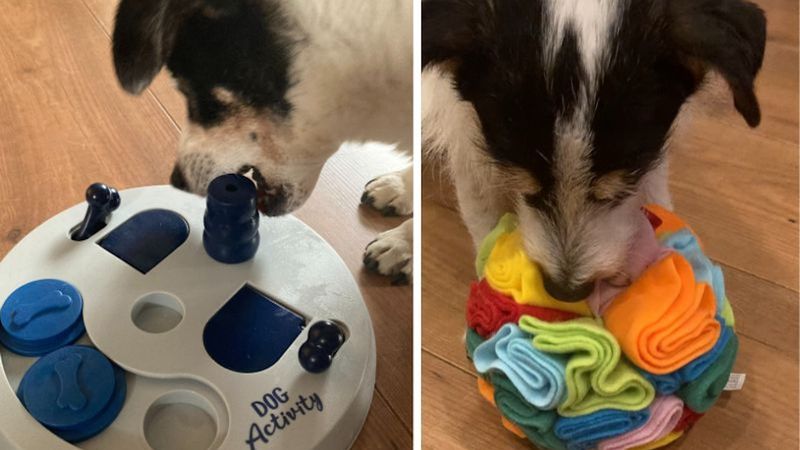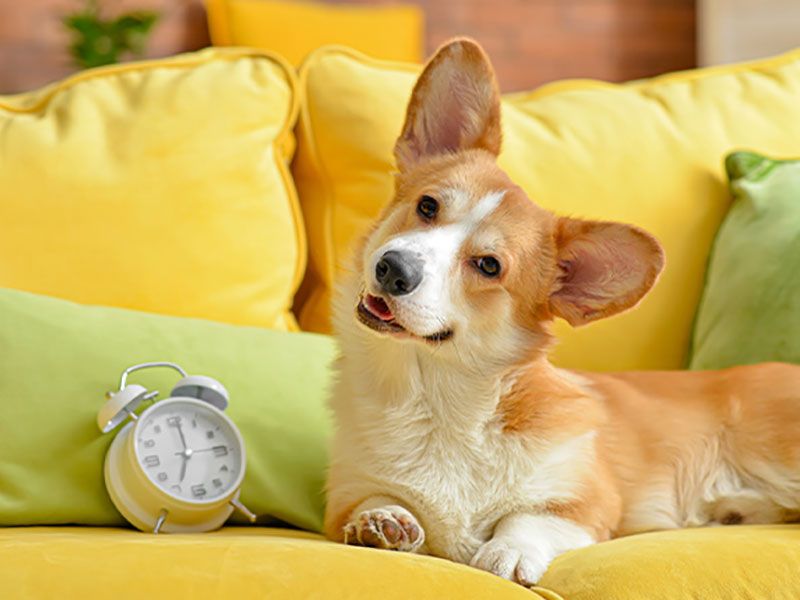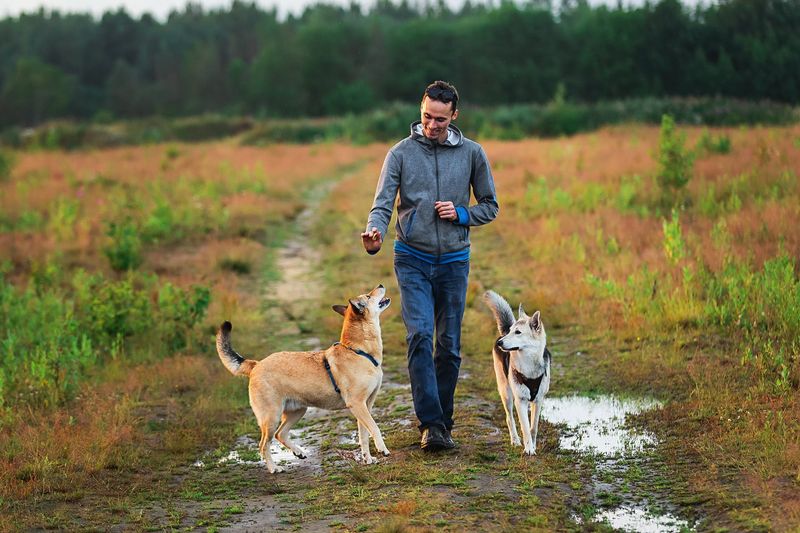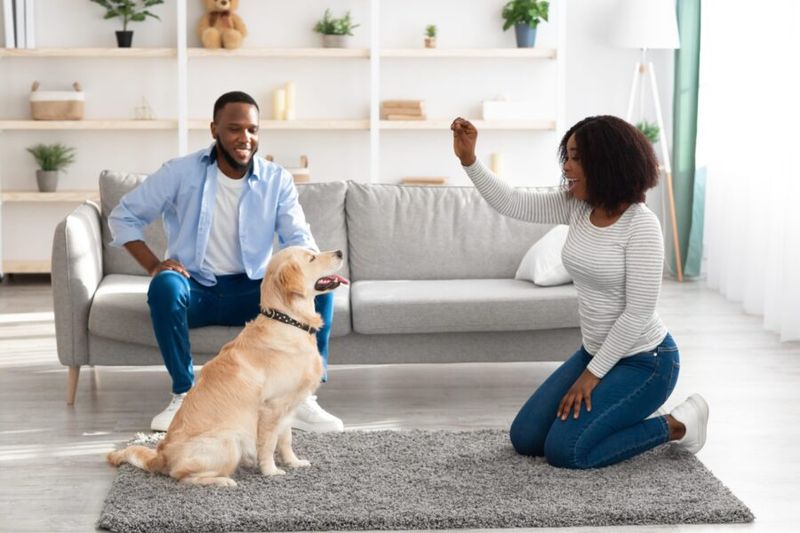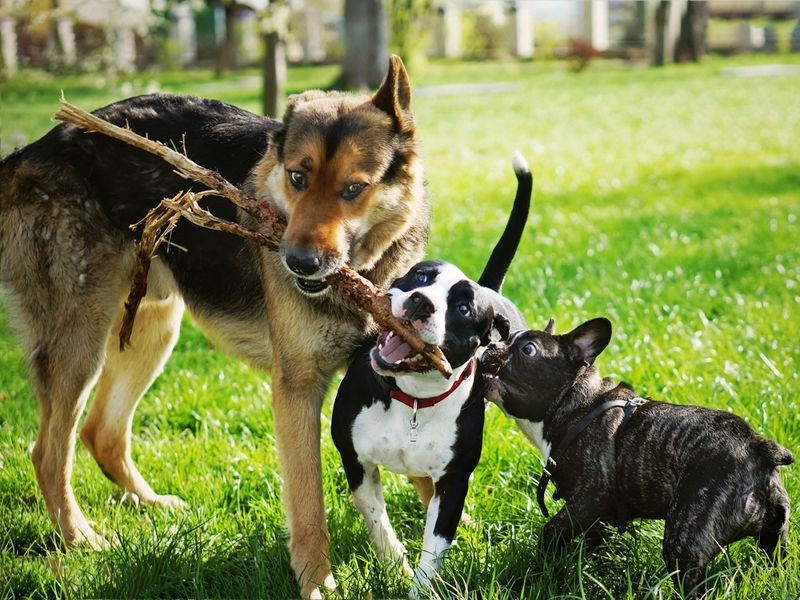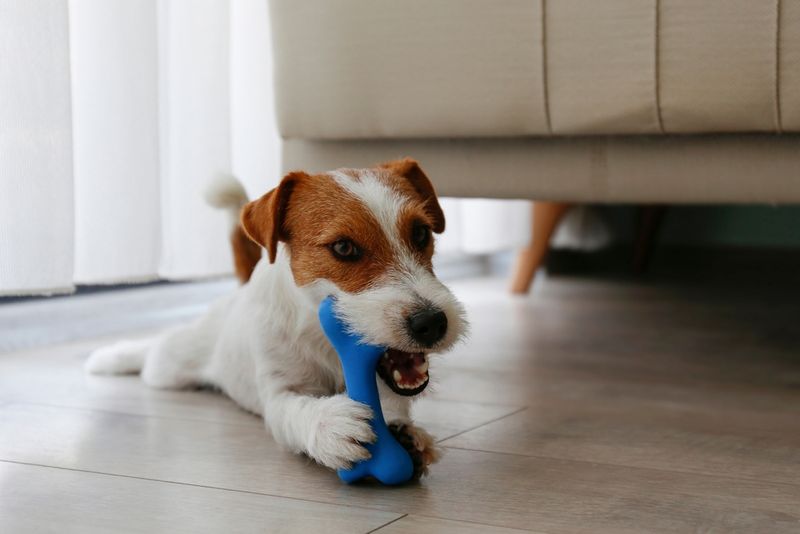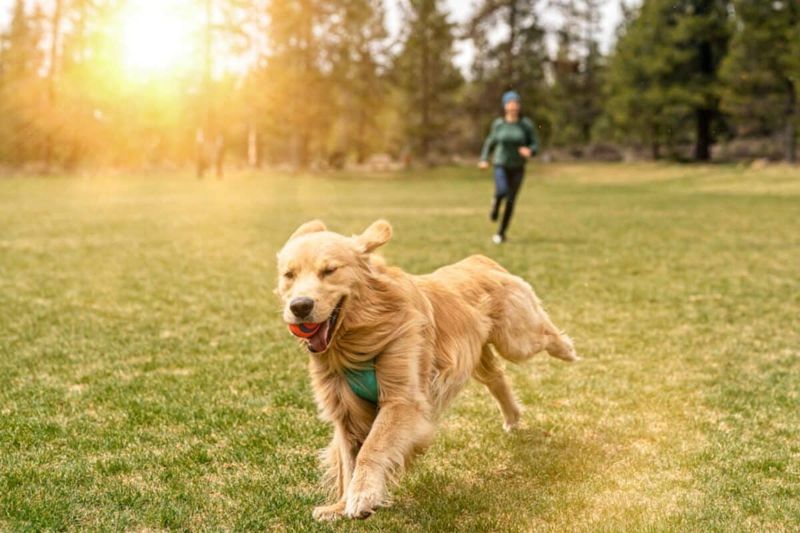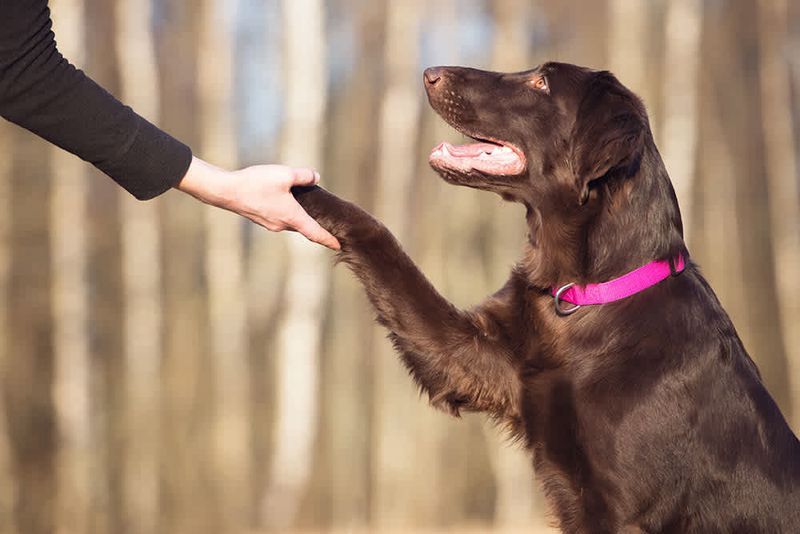Understanding what calms or stresses your dog is fundamental for their well-being. Dogs, much like humans, have their own set of soothing influences and stress triggers. In this post, we’ll explore a combination of environmental factors, activities, and interactions that either promote calmness in dogs or exacerbate stress. Knowing these can help you create a more balanced and happy life for your furry friend.
Gentle Music
Dogs are surprisingly sensitive to music. Playing gentle, calming music can soothe them in stressful situations. Such audio cues can drown out unsettling noises, making them feel secure. On occasion, classical tunes have been proven to reduce anxiety in dogs. A study conducted highlighted how music therapy can aid in reducing barking and pacing in shelter dogs.
A serene playlist allows the canine to settle into a peaceful slumber. It’s like a lullaby to their ears, wrapping them in a cocoon of calm. So next time your dog seems uneasy, try tuning into some mellow harmonies.
Aromatherapy with Lavender
Lavender is not just for humans; it works wonders for dogs too. Its natural calming properties can soothe anxious pups. Whether in oil form or as fresh sprigs, lavender’s scent can lower stress levels.
Many pet owners have found that diffusing lavender oil in the home can assist in relaxation, especially during thunderstorms or fireworks. This aromatic approach offers a holistic remedy, enveloping your dog in tranquility. So, when your pet seems anxious, consider this fragrant strategy to bring about serenity.
Interactive Toys
Interactive toys are more than just playthings; they are tools for mental stimulation. Puzzles and treat-dispensing toys challenge your dog’s mind, keeping them engaged.
This mental activity is crucial in diverting their attention from anxiety-inducing triggers. Their curiosity and problem-solving skills are activated, leading to satisfaction and calmness. Incorporating such toys in daily routines can significantly reduce stress levels in dogs. It’s a fun and productive way to keep their minds occupied and stress at bay.
Consistent Routine
Dogs thrive on routine. Predictability in daily activities such as feeding, walks, and bedtime gives them a sense of security.
Much like humans, dogs feel more at ease when they know what to expect. A consistent schedule minimizes uncertainty, which is a common stressor for many pets. By maintaining a regular routine, you’re offering stability that can significantly reduce anxiety. It’s a simple yet effective way to foster a serene environment for your dog.
Nature Walks
Nature is therapeutic. For dogs, walks in natural settings provide an escape from daily stressors. The fresh air, varied scents, and open spaces rejuvenate their spirits.
Exploring the outdoors helps them burn off energy, promoting physical and mental well-being. The sensory experience of a forest walk is unmatched, offering an instant mood boost. If your dog appears anxious or restless, a stroll amidst nature might be the perfect remedy for calming their mind.
Calming Beds
Comfort is key to relaxation. Calming beds, designed with soft materials and raised edges, offer a sanctuary for dogs. These beds provide a sense of security, mimicking the feeling of being cuddled.
For dogs that struggle with anxiety, a calming bed can be a game-changer. It’s their personal retreat when the outside world becomes too overwhelming. Investing in a quality calming bed could lead to a happier, more relaxed pet.
Soothing Rain Sounds
The sound of rain has a natural calming effect. Dogs often find comfort in these ambient sounds, which can mask stressful noises like traffic.
Using smart speakers or apps to play rain sounds can create a serene atmosphere for your pet. This auditory backdrop can ease anxiety, especially during noisy events like thunderstorms. When your dog seems on edge, consider playing these gentle sounds to create a tranquil environment.
Positive Reinforcement Training
Training isn’t just about discipline; it’s an opportunity for bonding and building confidence. Positive reinforcement techniques, using treats and praise, can transform training into a stress-reducing activity.
When dogs associate training sessions with rewards, they become more engaged and relaxed. This form of mental stimulation promotes trust and security, both essential for a calm demeanor. Incorporating positive reinforcement can be a joyful and calming experience for both you and your dog.
Comforting Touch
The power of touch is universal. Effortless ear massages or soothing back rubs can work wonders in calming your dog. Like humans, dogs find comfort in physical affection.
Through gentle strokes, you can ease their nerves and reinforce the bond you share. Sometimes, all they need is a reassuring hand to feel at ease. Regular massages not only relax but also improve circulation, supporting their overall health. Next time your dog is stressed, remember the calming power of touch.
Snuggle Sessions
Who doesn’t love a good snuggle? Dogs, with their affectionate nature, often find comfort in close physical contact. Sharing a snuggle session on the couch can ease a dog’s anxiety, making them feel loved and secure.
The warmth and companionship during these moments have a soothing effect, akin to a warm hug. Whether it’s after a long day or during a thunderstorm, these cuddle times can be a peaceful refuge for your dog.
Specialized Anxiety Vests
Anxiety vests are ingeniously designed to apply gentle pressure, similar to swaddling a baby. This physical touch can have a profound calming effect on dogs, especially during travel or fireworks.
These vests are crafted to provide comfort and security, making stressful situations more manageable for anxious dogs. If your dog struggles with anxiety, consider trying a specialized vest as a supportive measure to help them feel at ease.
Playtime with Peers
Social interaction is vital. Dogs, being social creatures, thrive when given opportunities to play with their peers. Such interactions not only burn off excess energy but also teach valuable social skills.
A session of playful antics with fellow canines can be a stress reliever, offering joy and camaraderie. Regular playdates can contribute to a happier, more balanced dog. It’s a delightful way for dogs to connect and unwind.
Chew Toys
Chewing is a natural behavior that provides stress relief. High-quality chew toys can offer both entertainment and a calming effect for dogs. This activity helps release pent-up energy and can prevent destructive chewing habits.
Providing your dog with a variety of chew toys can keep them occupied and reduce anxiety. It’s a simple solution to channel their natural instincts into a positive outlet, promoting relaxation.
Proper Nutrition
Nutrition plays a crucial role in a dog’s mental health. A balanced diet supports overall well-being and can contribute to a calmer demeanor. Proper nutrition ensures they have the energy and vitality to cope with stressors effectively.
Feeding your dog high-quality food with the necessary nutrients can make a noticeable difference in their behavior. When their body is well-nourished, they’re better equipped to handle stress, resulting in a more relaxed pet.
Hydration
Hydration is often overlooked but vital for a dog’s health and mood. Sufficient water intake ensures that all bodily functions, including those related to stress management, work optimally.
A dehydrated dog can become irritable and anxious. Always provide fresh, clean water to keep them hydrated. By ensuring your dog is properly hydrated, you’re supporting their health and helping reduce potential stress.
Loud Noises
Loud noises are notorious stressors for dogs. Whether it’s fireworks, thunderstorms, or construction sounds, such noises can trigger anxiety.
Dogs have acute hearing, and loud sounds can be overwhelming. Providing a safe, quiet space during these events can help mitigate stress. Consider using noise-canceling devices or creating a cozy haven to comfort your dog during these challenging times.
Chaotic Environments
A chaotic or cluttered environment can be disorienting for dogs. Unpredictable movements, loud voices, and constant activity can heighten their stress.
Creating a calm and organized space helps promote relaxation. Designate a specific area for your dog where they can retreat and find tranquility when needed. This calm zone can be their safe haven away from the chaos.
Strangers
Encounters with unfamiliar people can stress dogs, especially if they are not socialized. Strangers bring unknown scents and behaviors, which can be intimidating.
To ease their anxiety, introduce new people gradually, allowing the dog to approach on their own terms. Positive reinforcement with treats can create a more welcoming experience. This approach fosters trust and reduces stress when meeting new faces.
Lack of Exercise
Insufficient exercise leads to pent-up energy and frustration, often manifesting as stress. Regular physical activity is crucial for a dog’s mental and physical health.
Daily walks or play sessions help release energy, reduce anxiety, and improve mood. Incorporating exercise into your dog’s routine can transform their behavior, ensuring they remain calm and content.
Inconsistent Training
Inconsistent training can lead to confusion and stress in dogs. Mixed signals from owners can make it difficult for them to understand expectations.
Clear, consistent commands reduce stress by providing structure. Training should be regular and positive, reinforcing desired behaviors to build confidence. This consistency fosters a stable, stress-free relationship between you and your dog.
Isolation
Dogs are inherently social animals, and prolonged isolation can lead to stress and anxiety. Long hours alone can result in destructive behaviors and increased stress levels.
Providing companionship, whether through human interaction or another pet, can alleviate feelings of loneliness. Ensuring they have plenty of social engagement is essential for a happy, stress-free life.



